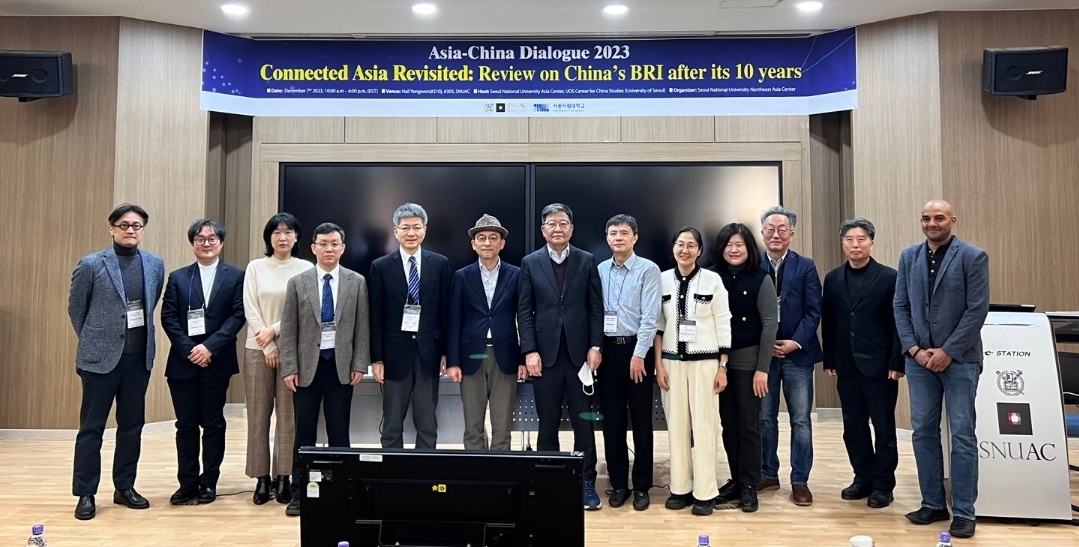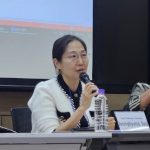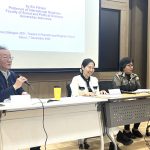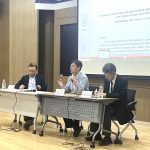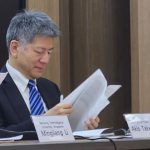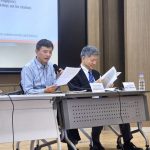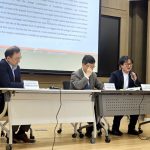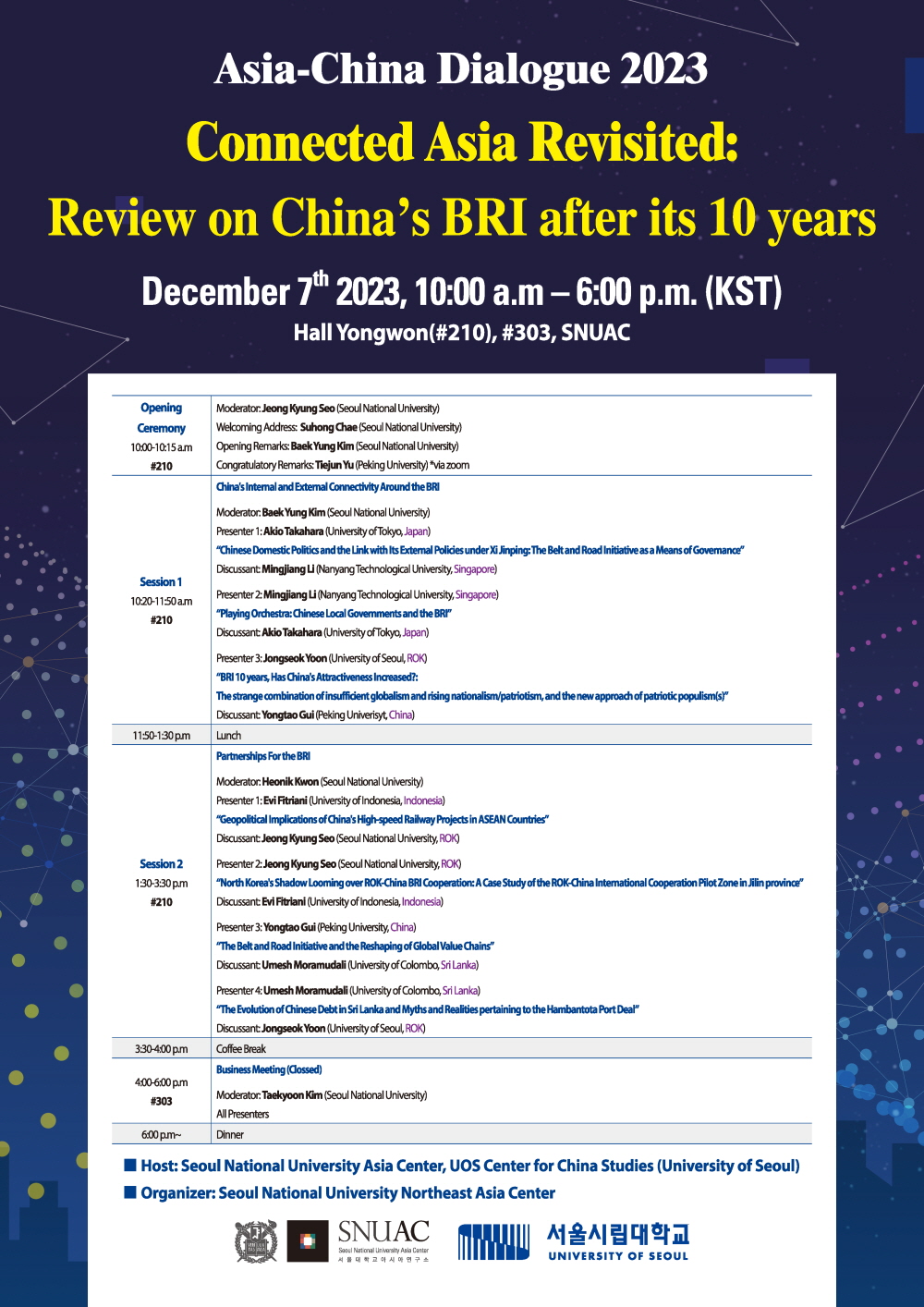
Connected Asia Revisited: Review on China’s BRI after its 10 years
- Date: December 7th, Thursday, 2023, 10:00 – 18:00
- Location: Room 303, SNUAC (Bldg. 101)
This international academic conference is to be held on December 7th, 2023, following the ‘Asia-China Dialogue 2021: Toward A Peaceful and Brighter Future’, which was hosted by SNUAC Northeast Asia Center in 2021 for all Asian countries to discuss the Asian issues to prepare for a better ‘Asian Century’.
In the 2021 conference, 23 scholars from 11 Asian countries gathered to discuss the issues and discussion points with China in terms of international relations, economics, and social and cultural sectors from the perspectives of their own countries and Asia. In the evaluative meeting of the organizational committee (attendees: organizational committee chair, director and deputy director of SNUAC, director of UOS Center for China Studies, etc.; held on Nov. 17, 2021), it was evaluated that this conference had strengthened the status and platform-role of SNUAC in the international acadamia, and that it had contributed to preparing a more advanced global network of SNUAC. Also, based on the view number of the videos from the conference which mounts up to 1,844 (1,121 for Korean version, 723 for English version, as of Nov. 14, 2023, excluding views of the Korean Association of Contemporary China Studies website), this year’s conference will contribute to expand SNUAC’s global network. Considering the fact that the year 2023 is the 10th year of China’s One Belt One Road, which is associated with all Asian countries, the conference will focus on academically evaluating the past decade of One Belt One Road from an Asian perspective (participating countries: Korea, China, Japan, Singapore, Indonesia, Sri Lanka). Also, by publishing the research outcome on prestigious international journals, we seek to gather the various voices of Asia on One Belt One Road, and strengthen SNUAC’s status as a platform in the international academia.
At the international academic conference held by the Northeast Asia Center (NEAC) on December 7th, the participants academically assessed the past decade of the Belt and Road Initiative from an Asian perspective, as it is associated with each Asian country.
In the first session, moderated by Baek Yung Kim, director of NEAC, Akio Takahara (Prof., Tokyo Univ.) presented “The Politics of the Evolution of the Belt and Road Initiative, a Constellation that Changes Its Shape and Colour” from a unique perspective of comparing the BRI with China’s economic reform. He noted how the BRI, which began without any clear definition, is changing its shape and color following changes in China’s foreign perceptions and interests. Mingjang Li (Prof., Nanyang Tech. Univ.) presented “Playing Orchestra: Chinese Local Governments and the BRI” to explain the BRI as a case of adjustment and cooperation between China’s central government and local governments, adding a new perspective to the mainstream academic view of focusing on the tensions and conflicts between the two. Jongseok Yoon (Prof., Univ. of Seoul) presented “BRI 10 years, Has China’s Attractiveness Increased? : The strange combination of insufficient globalism and rising nationalism/patriotism, and the new approach of patriotic populism(s)”, noted how the international society’s perception of China has not improved over the decade of BRI and found its cause in not only China’s immaturity toward globalism but also the peculiar changes and combinations of nationalism and patriotism in the international society.
In the second session moderated by Heonik Kwon (HK Prof., SNUAC), Evi Fitriani (Prof., Univ. of Indonesia) presented “Geopolitical Implications of China’s High-speed Railway Projects in ASEAN Countries” to evaluate China’s strategic intention of giving geopolitical influence to ASEAN countries has not been met sufficiently, and found its major causes to be anti-China sentiment and China-Japan strategic competition. Jeongkyung Seo (Academic Research Prof., SNUAC) presented “North Korea’s Shadow Looming over ROK-China BRI Cooperation: A Case Study of the ROK-China International Cooperation Pilot Zone in Jilin province” and analyzed the case of Korea-China International Cooperation Pilot Zone in Jilin to examine the changes in perceptions and policy in Korea and China in terms of Belt and Road, in association with the variable of North Korea. Yongtao Gui (Prof., Beijing Univ.) presented “The Belt and Road Initiative and the Reshaping of Global Value Chains” to deliver China’s perspective on the influence of BRI on the reconstruction of the global value chain. Lastly, Umesh Moramudali (Ph.D., Univ. of Colombo) presented “The Evolution of Chinese Debt in Sri Lanka and Myths and Realities pertaining to the Hambantota Port Deal” to analyze the BRI debt and Hambantota Port Deal concerning the Sri Lankan domestic factors.
The third session was moderated by Taekyoon Kim (Prof., SNU), as an unofficial conference for all participants. It was a time of mutual discussion for the six presentations of the conference to be published as a special issue of the Asian Journal of Political Science, which is SNUAC’s international journal.
NEAC has concluded that it is necessary to continue research on BRI in-depth, as it is important in terms of international politics, economics, and society in the 21st century, to spread the voice of Asia, and to continue exchanges with the international academia. Encouraged by the shared sentiment of participants, the NEAC is pursuing its plan to organize a panel for ICAS 13, which will be held in Indonesia this year. With these accomplishments and plans, there are high hopes for SNUAC’s expansion of international networking and research.

